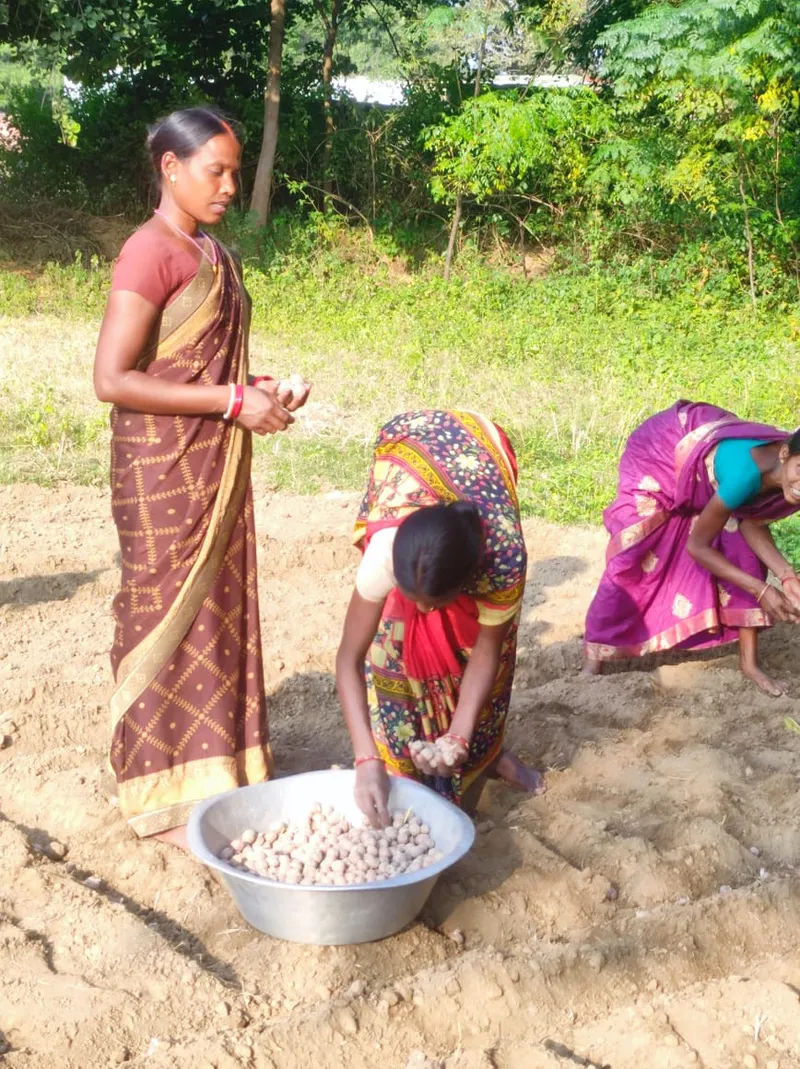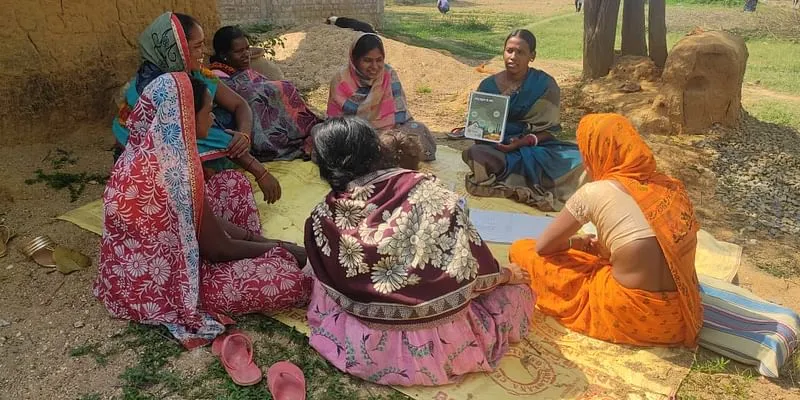This Jharkhand homemaker champions clean cooking
Usha Oraon, a homemaker from Khakhparta village in Lohardaga district of Jharkhand, who lacked the confidence to speak to strangers now advocates use of cleaner fuels for cooking. She also helps women earn more so they can buy cooking cylinders and stop using chulhas.
Knowing how harmful traditional biomass stoves can be to women’s health, Usha Oraon of Khakhparta village in Lohardaga district of Jharkhand, advocates use of clean cooking.
Here is her journey from being a homemaker to a grassroots leader – in her own words.
"Despite having a basic education, my life was confined to the four walls of my house. I spent my day taking care of my three sons and doing household chores.
"In December 2021, I attended an event on climate change organised by the Jharkhand State Livelihood Promotion Society (JSLPS) and HOPE, a Jharkhand-based NGO.

Usha Oraon talks to women about the harmful effects of using biomass stoves for cooking (Photo courtesy HOPE)
"For the first time, I got an opportunity to share my thoughts from a dais. Speaking in front of everyone made me very happy because I’d always lacked the confidence to speak to anyone other than my family.
"Like most women in my village, I too was using a chulha (brick stove) to cook food, as biomass is easily available and LPG cylinder is expensive.
"At the event I learnt how continuous use of biomass affects women’s health. I realised that this issue was important. So I participated in a survey to map the fuel usage among households in the district, to understand why women were not switching to cleaner fuels like LPG.
"I started working as a pardana (meaning ‘moving forward’ in Oraon language) didi in the Cleaner Air Better Health Project, which was funded by the United States Agency for International Development (USAID) and implemented by Asar and HOPE.
"Talking to the women, I understood that they were using the chulha because they couldn’t afford to buy an LPG cylinder. The women said that if they could earn more, they would be able to convince their family members to prioritise clean cooking by allocating money in their monthly expenses.
"I made it my mission to make life easier for hundreds of women like me who breathe the chulha’s fumes every day. I started conducting awareness sessions for women from my community using simple tools. Because of my work in the community, I became the president of the cluster level federations under JSLPS.
I held meetings to discuss potential livelihood options. I started linking the women with various livelihood schemes and social security benefits of the government. I helped them set up small businesses like animal husbandry.

Usha Oraon talks to women about the harmful effects of using biomass stoves for cooking (Photo courtesy HOPE)
"In June 2022, I helped two women get a loan to start a piggery. They bought two piglets and constructed a shelter using locally available materials such as mud. With the earnings from the piggery, they purchased an LPG cylinder. They have started using it regularly for cooking now, shifting from the biomass chulha.
"I cover four panchayats – Rampur, Tigra, Bagha and Bhattkhijri with 28 self-help groups and 374 women. I stay in touch with the women regularly, to keep track of their livelihood and clean cooking.
I have stopped using my chulha. I have completely switched to LPG.
"Slowly, we are seeing many women making the switch, thanks to the income from their new livelihoods.
I hope that every woman can breathe clean air and also become financially independent soon."
(This story has been provided by Village Square and is part of a special collaboration to highlight
women-centric stories from rural India.)







